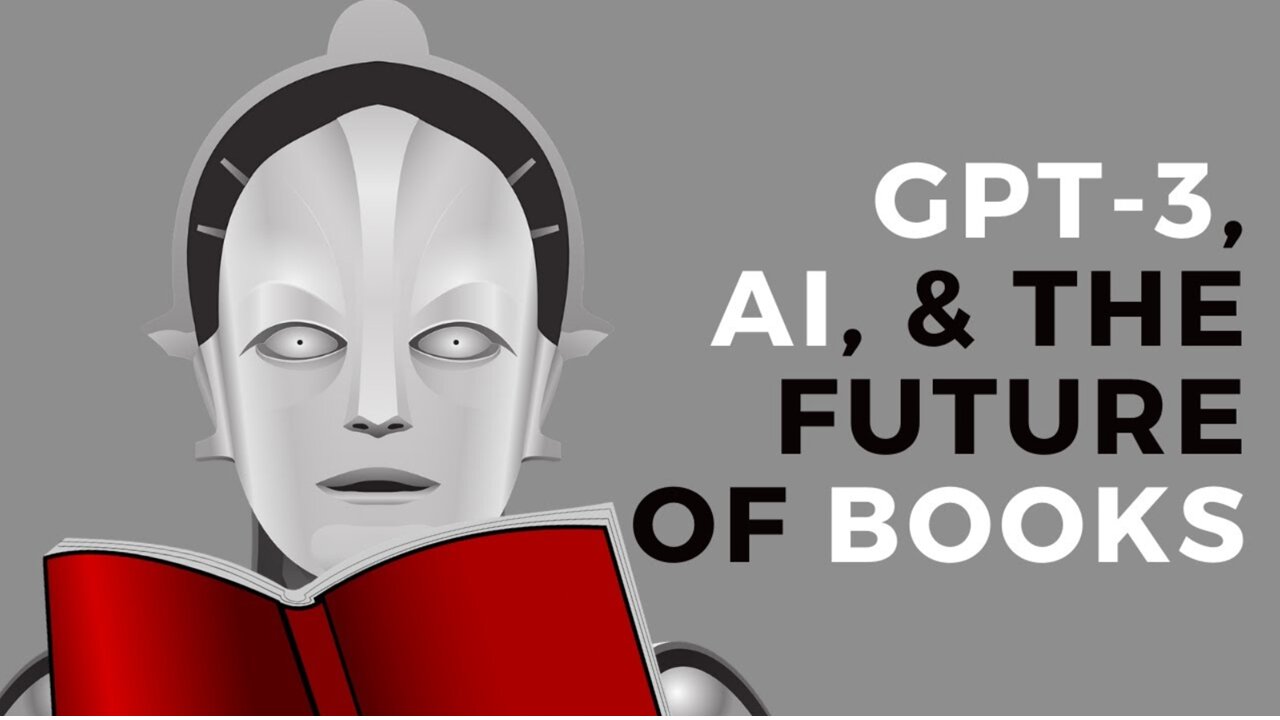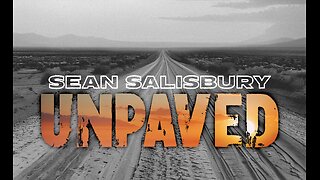Premium Only Content

AI and the Future of Publishing: Insights from Celebrity Ghostwriter and Writing Coach Joshua Lisec
👉 Write a useful book that converts readers into high-paying clients. Free training shows you how: https://lisecghostwriting.com/golden/ 📖
The boundaries between creativity and code are dissolving, and nowhere is that more evident than in the rise of artificial intelligence in publishing. “AI and the Future of Publishing: Insights from Celebrity Ghostwriter and Writing Coach Joshua Lisec” explores what happens when machine learning, applied artificial intelligence, and human creativity collide. Drawing from his pioneering experience in stylometry and his role as a celebrity ghostwriter, Joshua Lisec offers a deep, strategic perspective on the evolving relationship between authors, AI, and the future of writing.
The conversation begins with a question many in the publishing industry have asked but few have truly answered: What happens when OpenAI, backed by Elon Musk, develops a tool so powerful that it can write an entire manuscript at the click of a button? This is not a distant hypothetical. From GPT-3 examples and GPT-3 samples that generate legal documents, poems, and even business strategies, to more advanced iterations like GPT-3.5 OpenAI, the capabilities of machine learning projects are transforming not only how text is created but also how authors and ghostwriters define their craft.
Lisec traces how he anticipated this revolution years before most writers had even heard of OpenAI. His early work in stylometry, the data science of author voice, became the foundation for a software-driven approach to ghostwriting. By analyzing sentence patterns, rhythm, and diction, he created a system that could identify what makes an author’s voice unique—long before predictive text and text prediction models became mainstream tools in the writer’s toolbox.
This video explores how that foresight is now meeting reality. As artificial intelligence in publishing becomes increasingly sophisticated, the question is no longer if AI will influence the future of books—it’s how deeply it will reshape the publishing industry trends of the coming decade. Lisec examines what happens when machine learning systems such as GPT-3 and GPT-3.5 OpenAI can instantly generate coherent, persuasive content. Whether it’s a legal brief, a poem, or an intricate piece of fiction, these OpenAI systems can produce text that reads like it was written by a seasoned professional.
Yet, as Lisec points out, this isn’t the end of authorship—it’s an evolution. The future of publishing will not eliminate freelance writers, editors, or writing coaches; instead, it will redefine their roles. Writers who understand applied artificial intelligence and can integrate machine learning projects into their creative workflow will thrive in a world where technology amplifies rather than replaces human storytelling. Just as content management systems like WordPress revolutionized web design by making it accessible without erasing the need for developers, artificial intelligence in publishing will democratize creativity while elevating the value of true expertise.
Lisec explores the potential of general AI and artificial general intelligence to generate not only text but also meaning. When systems like GPT-3 are fed millions of data points, they don’t merely replicate—they interpret and create. However, as Lisec emphasizes, authors must remain the architects of their narratives, using these systems as collaborators rather than competitors. The future of writing lies in the intersection between human intention and machine precision.
Throughout the discussion, Lisec examines how publishing industry trends are already shifting. Traditional gatekeepers—publishers, editors, and agents—are no longer the only pathways to market. AI-driven platforms are empowering independent authors to design, produce, and distribute books faster than ever before. But with that speed comes a new challenge: maintaining the authenticity and persuasive depth that define great writing. This is where the human touch—and the principles of persuasive writing—remain irreplaceable.
Lisec, as a writing coach and celebrity ghostwriter, explains that tools like GPT-3.5 OpenAI can assist in structuring first drafts, organizing ideas, and even replicating a writer’s tone. But AI cannot yet discern emotional truth, moral nuance, or the subtle intent behind a story. These are the hallmarks of persuasive and enduring writing—qualities that only a skilled human can refine. Thus, the future of books will likely see human writers acting as creative directors who guide, correct, and enhance what AI systems generate.
One of the most compelling insights in this conversation comes from comparing the current state of machine learning to early website development. Before platforms like Squarespace or Shopify, creating a website required deep coding knowledge. Now, anyone can launch a basic site in minutes—but companies still rely on professionals to make their websites functional, elegant, and effective. The same will be true in publishing. Authors will soon be able to produce serviceable manuscripts using AI, but those who want to create commercially successful, emotionally resonant books will turn to professionals—ghostwriters, editors, and writing coaches—who know how to blend the best of both worlds.
Lisec’s insights also touch on the ethical dimensions of applied artificial intelligence. As AI-generated content floods digital and print platforms, distinguishing between authentic and synthetic voices will become increasingly difficult. This raises questions about originality, authorship, and value in the future of writing. Will readers care who—or what—wrote the book if it moves them? Will publishers rely on predictive text algorithms to forecast market trends and dictate which stories get told? These are the frontiers that the publishing industry must now navigate.
The discussion doesn’t simply speculate; it provides a roadmap for writers who want to stay ahead. By studying machine learning projects, understanding how OpenAI operates, and experimenting with tools like GPT-3, writers can position themselves as innovators in the future of publishing. Lisec encourages authors to treat these technologies as extensions of their creative toolkit, not as threats to their livelihood. The key is adaptation—embracing change while mastering the art of persuasion that machines cannot replicate.
As the video unfolds, viewers gain a deeper appreciation for how artificial general intelligence may someday revolutionize every aspect of storytelling—from conception to publication. Yet, as Lisec emphasizes, the human role remains central. The celebrity ghostwriter of the future won’t just write—they’ll orchestrate, curate, and coach. They’ll work alongside AI systems, refining generated text with expert intuition and persuasive writing techniques. The writing coach becomes part technologist, part storyteller—a guide who ensures that technology serves creativity, not the other way around.
Ultimately, “AI and the Future of Publishing: Insights from Celebrity Ghostwriter and Writing Coach Joshua Lisec” challenges every writer, publisher, and creative professional to rethink what’s possible. The world of machine learning, GPT-3 examples, and OpenAI Elon Musk innovations is not a replacement for artistry—it’s a revolution in access, speed, and potential. Those who master both the language of humans and the logic of machines will define the next generation of the publishing industry.
The future of books belongs not to the algorithms, but to the authors who learn to collaborate with them. Joshua Lisec’s insights reveal that the pen and the processor can coexist—and together, they may write the greatest chapter in publishing history yet.
-
 LIVE
LIVE
The Quartering
2 hours agoFooled Again! Mamdani Backtracks Everything & Today's Breaking News!
15,657 watching -
 1:17:04
1:17:04
DeVory Darkins
3 hours agoPelosi SURRENDERS announces retirement and Bernie Sanders makes stunning admission
72.5K74 -
 LIVE
LIVE
Dr Disrespect
5 hours ago🔴LIVE - DR DISRESPECT - ARC RAIDERS - QUEST MASTER
2,306 watching -
 1:57:50
1:57:50
The Charlie Kirk Show
3 hours agoErika's Interview + Auburn Aftermath | Schlichter, Lomez | 11.6.2025
76.3K10 -
 1:02:01
1:02:01
Sean Unpaved
3 hours agoTragedy Strikes: Kneeland's Remembrance, Spo's Inferno, CFB HC Rumors, & TNF Raiders-Broncos' Odds
37.7K -
 1:01:46
1:01:46
Timcast
4 hours agoBannon RIPS GOP For Dismissing Zohran, "This Is Very Serious"
125K87 -
 2:12:18
2:12:18
Side Scrollers Podcast
5 hours agoSide Scrollers VTuber TAKE OVER with Kirsche, Rev Says Desu & DarlingStrawb | Side Scrollers
52.8K4 -
 LIVE
LIVE
StoneMountain64
2 hours agoArc Raiders is actually INCREDIBLE
94 watching -
 2:03:04
2:03:04
MattMorseTV
5 hours ago $0.89 earned🔴Trump’s EMERGENCY Oval Office ANNOUNCEMENT.🔴
72.5K72 -
 LIVE
LIVE
GrimmHollywood
6 hours ago🔴LIVE • GRIMM HOLLYWOOD and BIG TALL REDNECK • 3K 3XL TAKEDOWN • PGA • BF6 REDSEC • ARC RAIDERS
80 watching